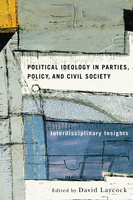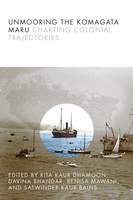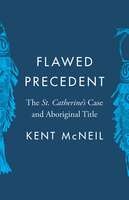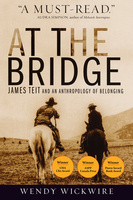A World without Martha
A Memoir of Sisters, Disability, and Difference
A World without Martha is an unflinching yet compassionate memoir of how one sister’s institutionalization for intellectual disability in the 1960s affected the other, sending them both on separate but parallel journeys shaped initially by society’s inability to accept difference and later by changing attitudes towards disability, identity, and inclusion.
Political Ideology in Parties, Policy, and Civil Society
Interdisciplinary Insights
This important study demonstrates that varied disciplinary approaches can illuminate the reach and impact of political ideologies on both politics and society.
Moments of Crisis
Religion and National Identity in Québec
Wide-ranging and theoretically sophisticated, Moments of Crisis offers a groundbreaking explanation for why religion continues to be implicated in national identity crises in Québec.
Canada on the United Nations Security Council
A Small Power on a Large Stage
This is the definitive history of the Canadian experience, both its successes and failures, on the world’s largest stage – the United Nations Security Council.
Unmooring the Komagata Maru
Charting Colonial Trajectories
Unmooring the Komagata Maru challenges conventional historical accounts to consider the national and transnational colonial dimensions of the Komagata Maru incident.
Moved by the State
Forced Relocation and Making a Good Life in Postwar Canada
Through five diverse episodes of forced relocation across Canada, Moved by the State offers a new look at the power of the welfare state and the political culture of postwar Canada.
Flawed Precedent
The St. Catherine’s Case and Aboriginal Title
This illuminating account of the St. Catherine’s case of the 1880s reveals the erroneous assumptions and racism inherent in judgments that would define the nature and character of Aboriginal title in Canadian law and policy for almost a century.
At the Bridge
James Teit and an Anthropology of Belonging
At the Bridge lifts from obscurity the story of James Teit (1864–1922), an outstanding Canadian ethnographer and Indian rights activist whose thoughtful scholarship and tireless organizing have been largely ignored.
Vancouverism
This is the remarkable story, told by a key insider, about Vancouver’s dramatic transformation from a typical mid-sized North American city into an inspiring world-class metropolis celebrated for its liveability, sustainability, and vibrancy.
The Nature of Canada
These captivating reflections on the history of our environment and ourselves will make you think differently not only about Canada’s past but also about our future.










